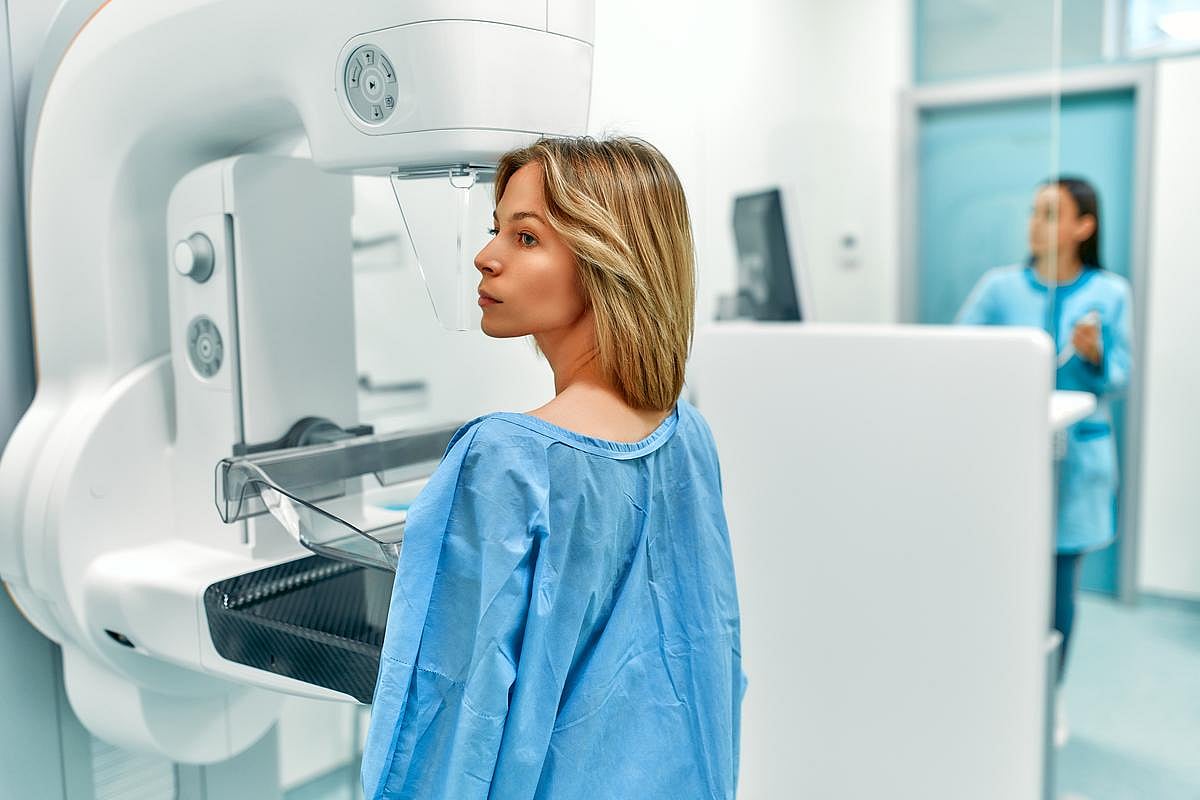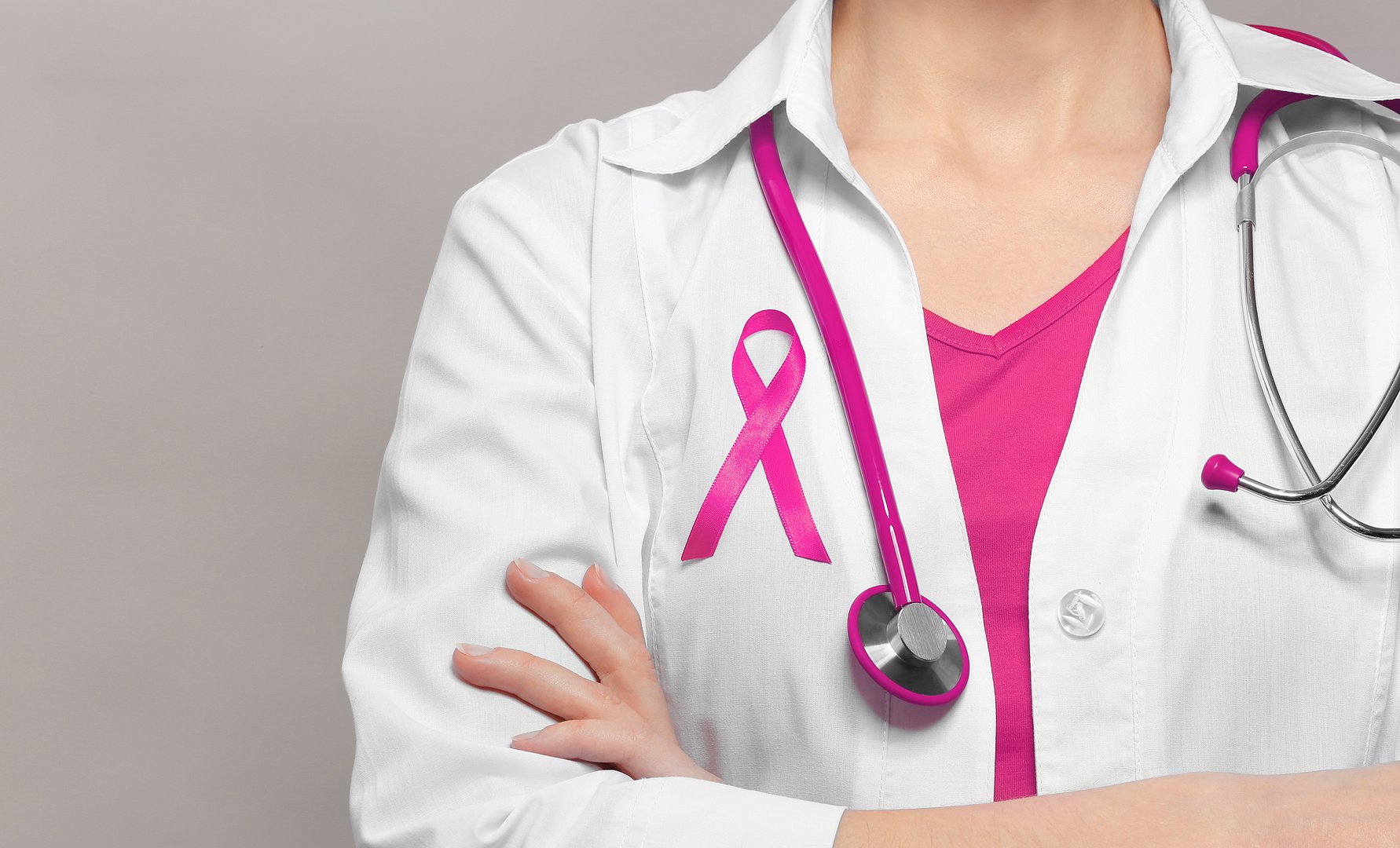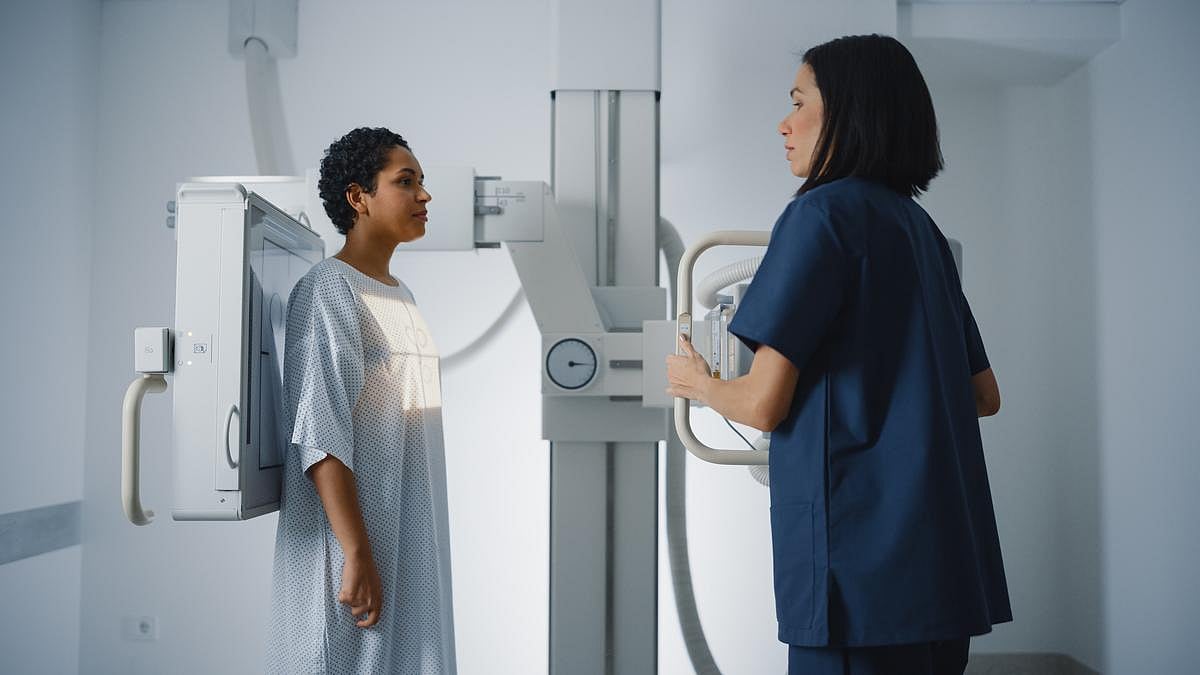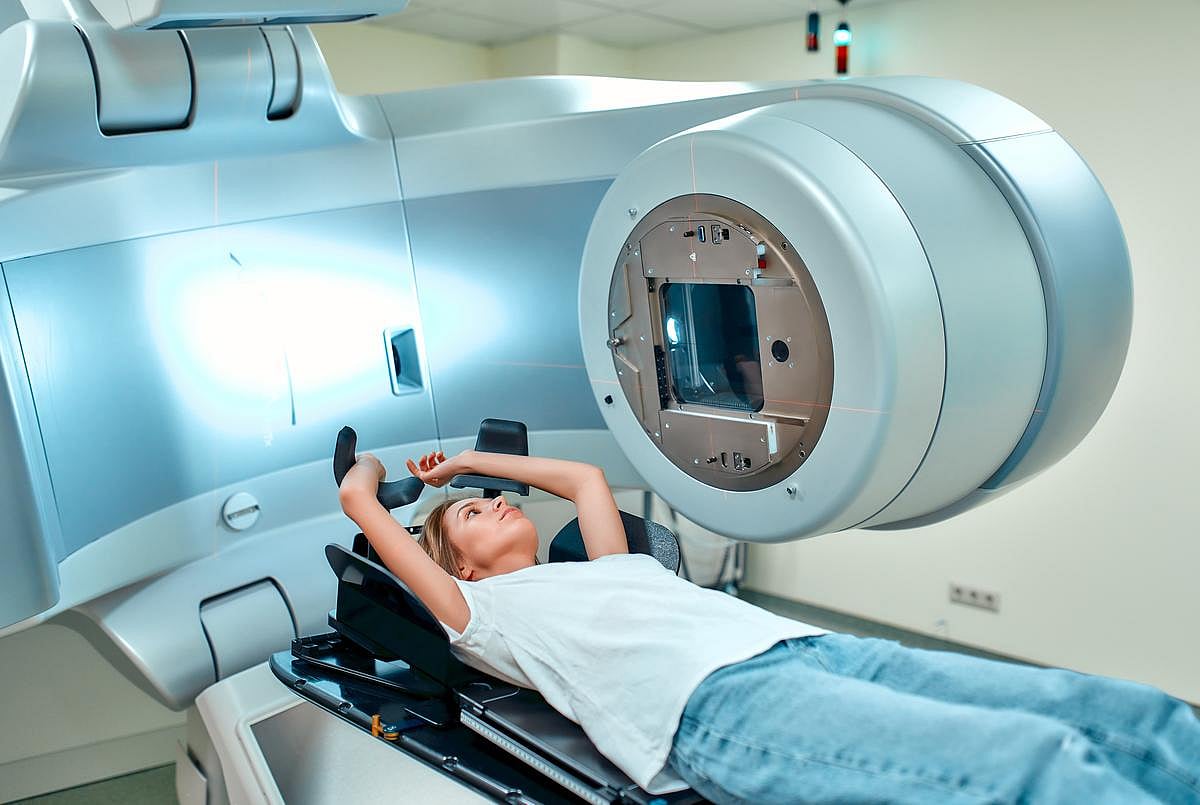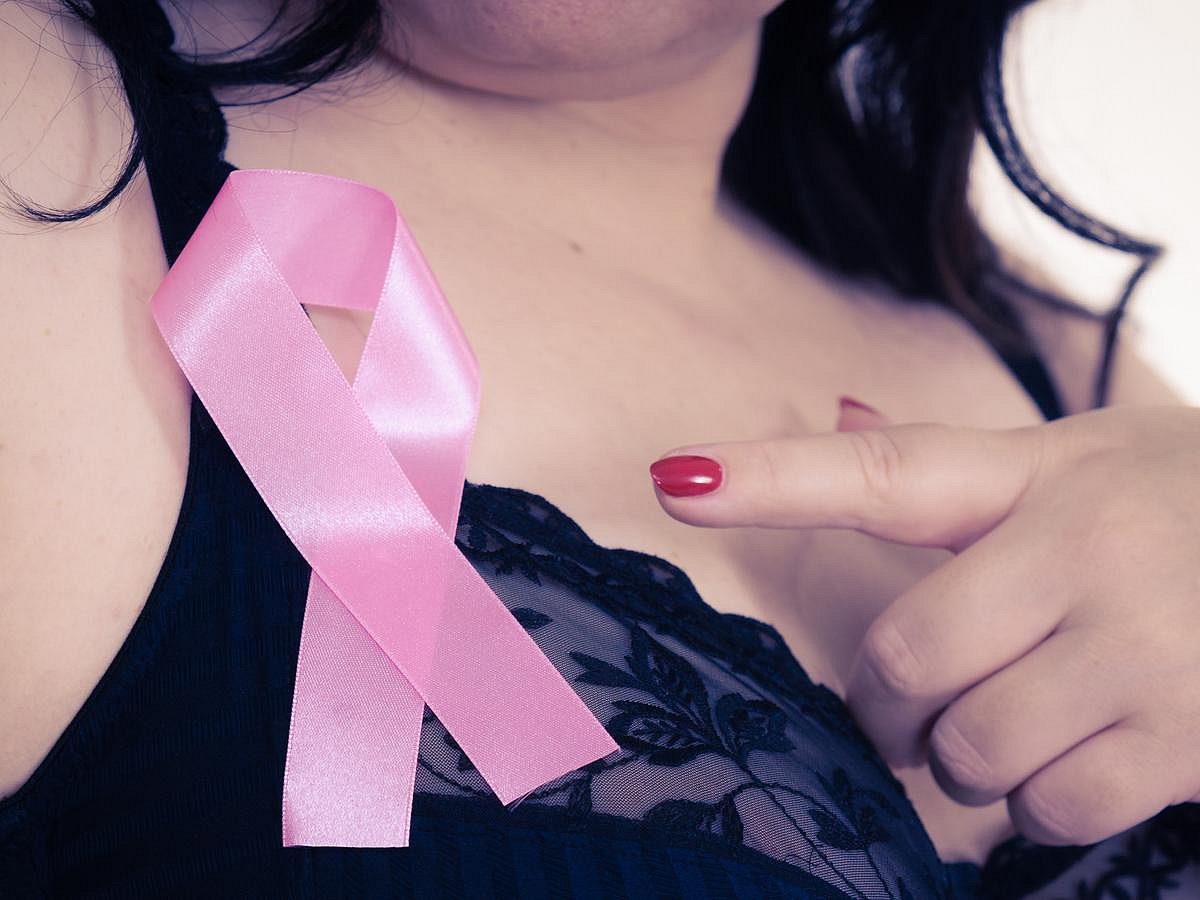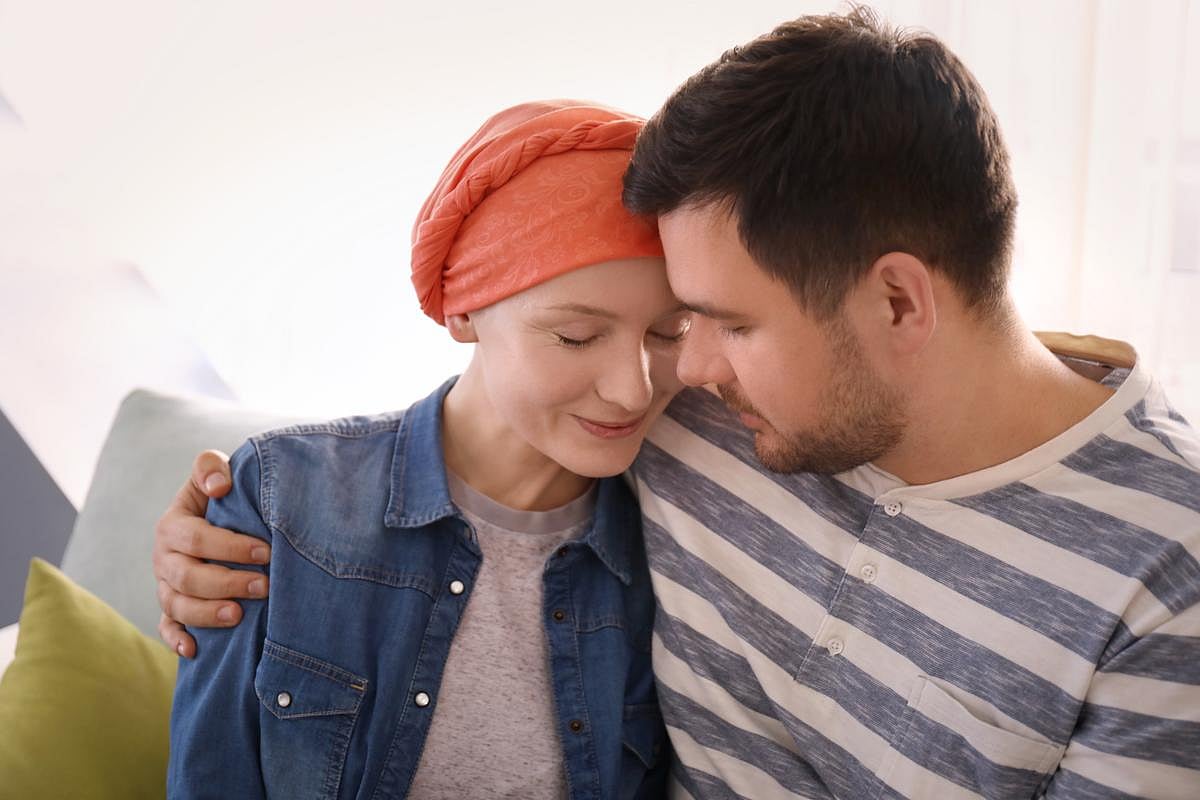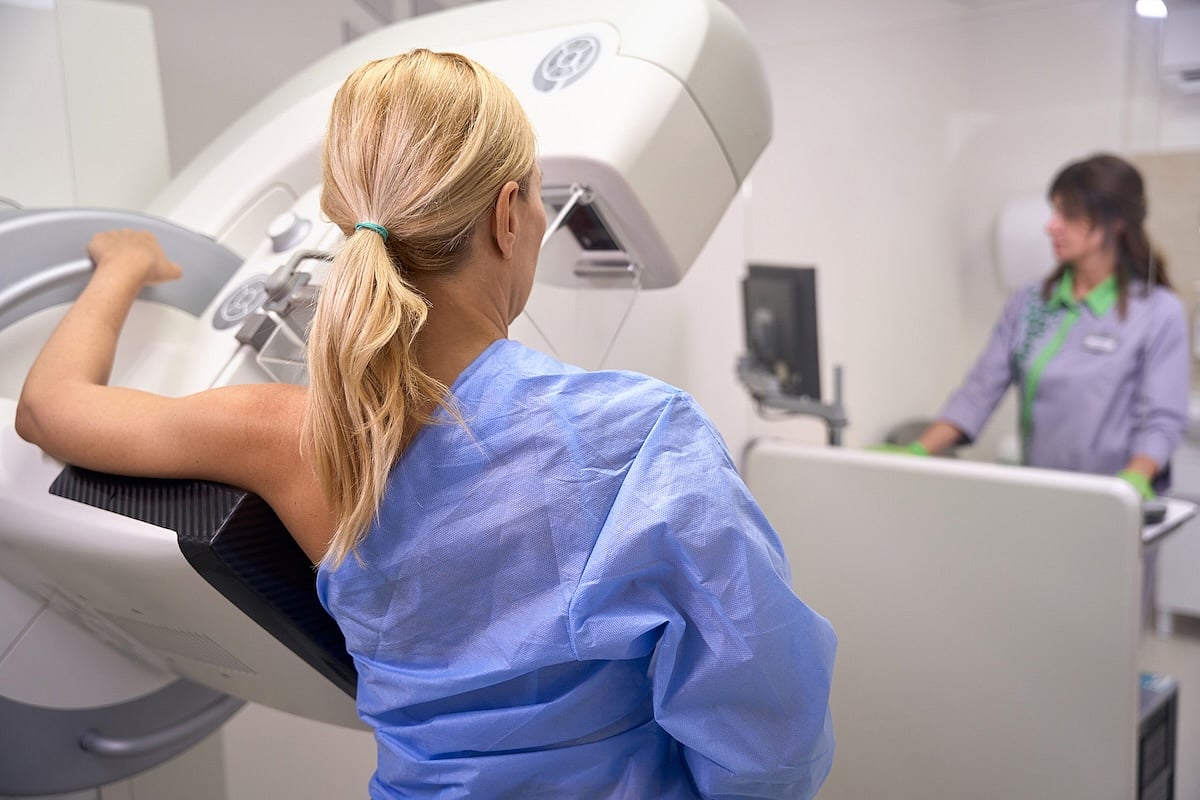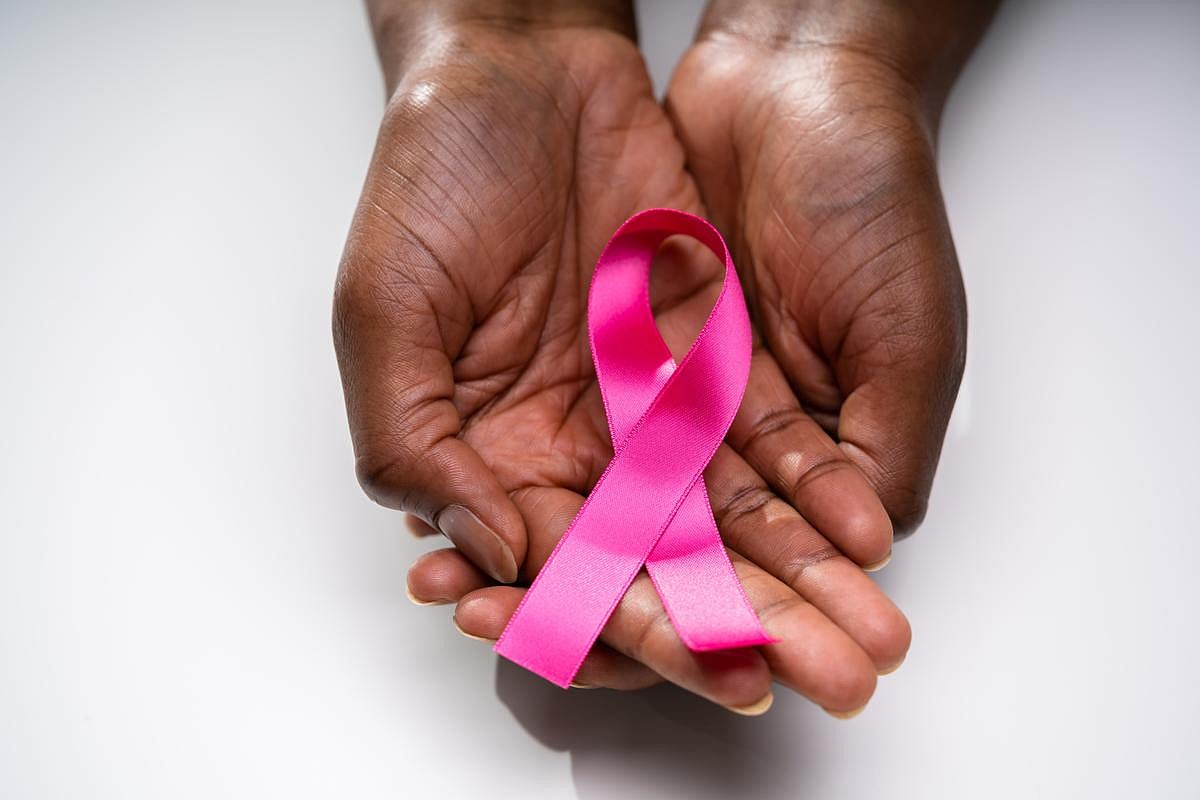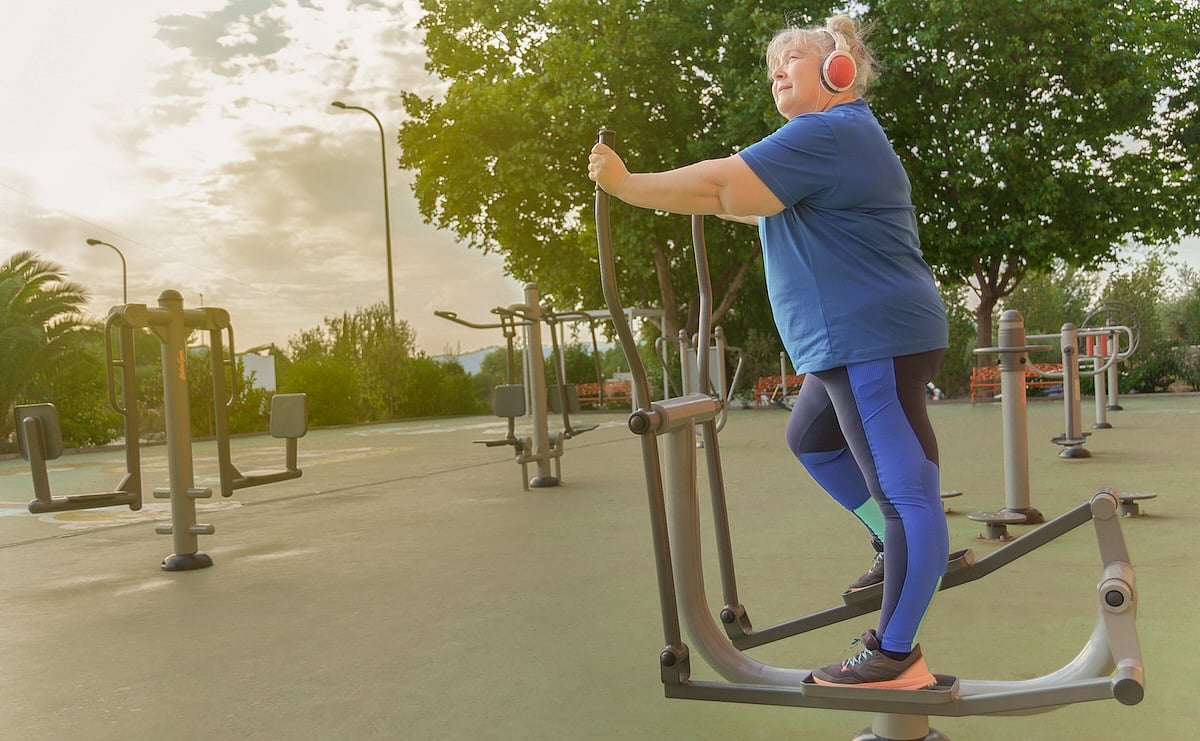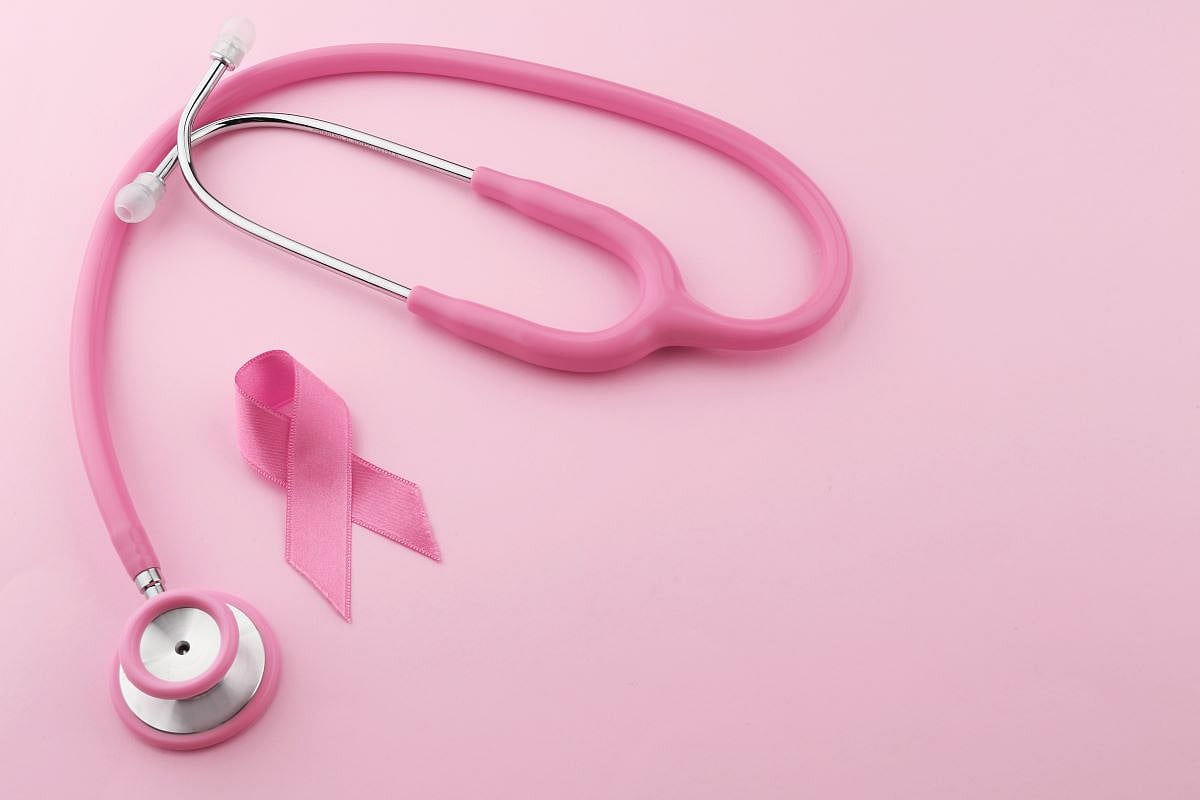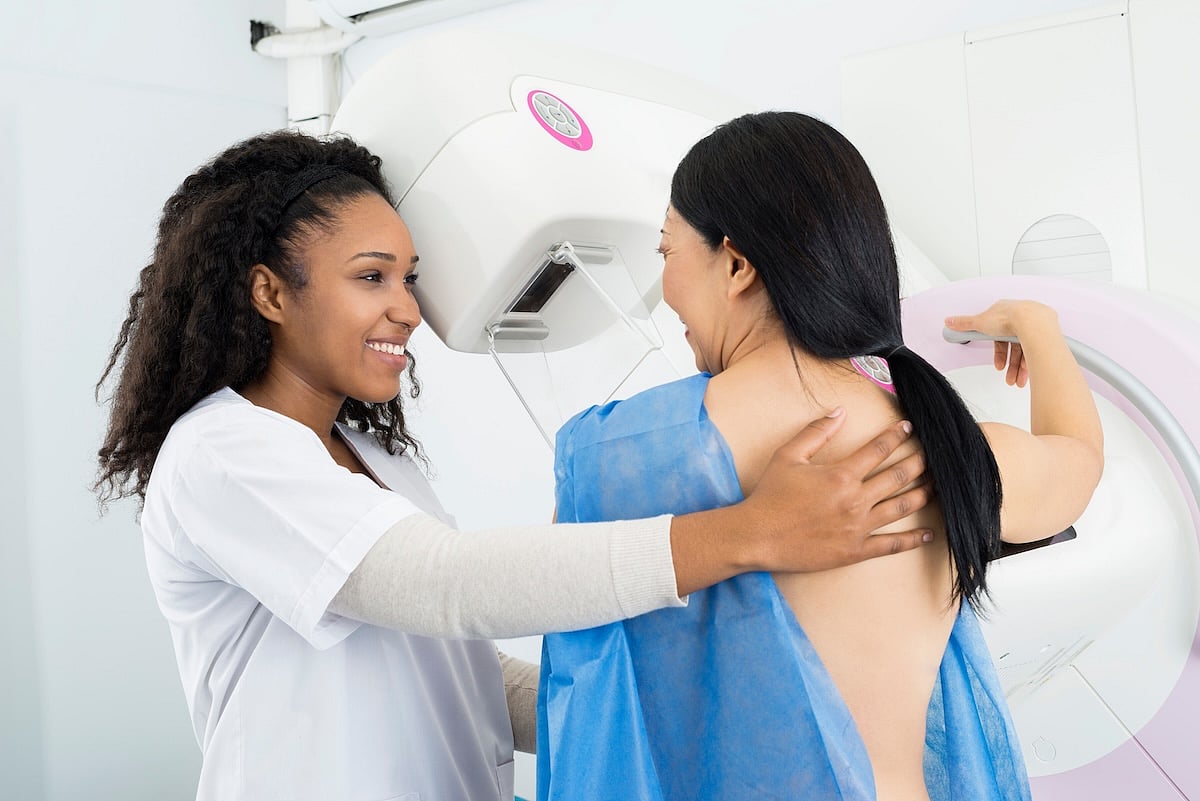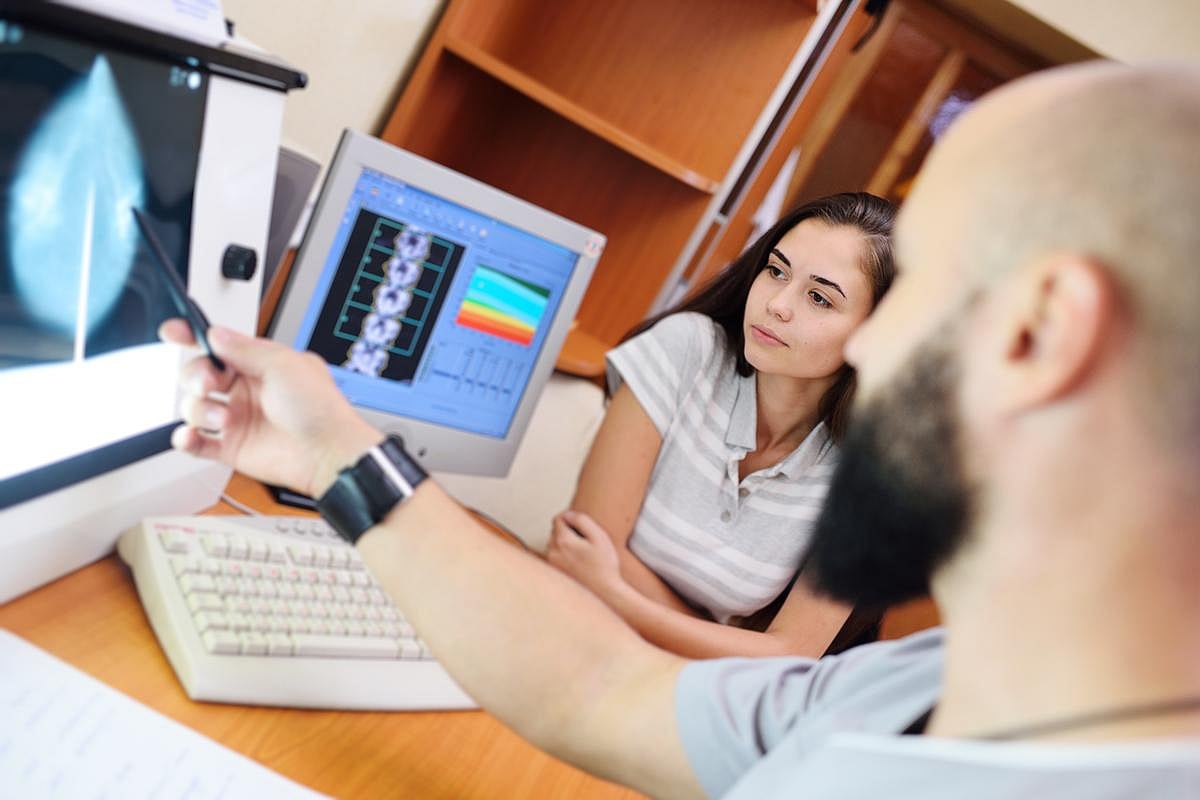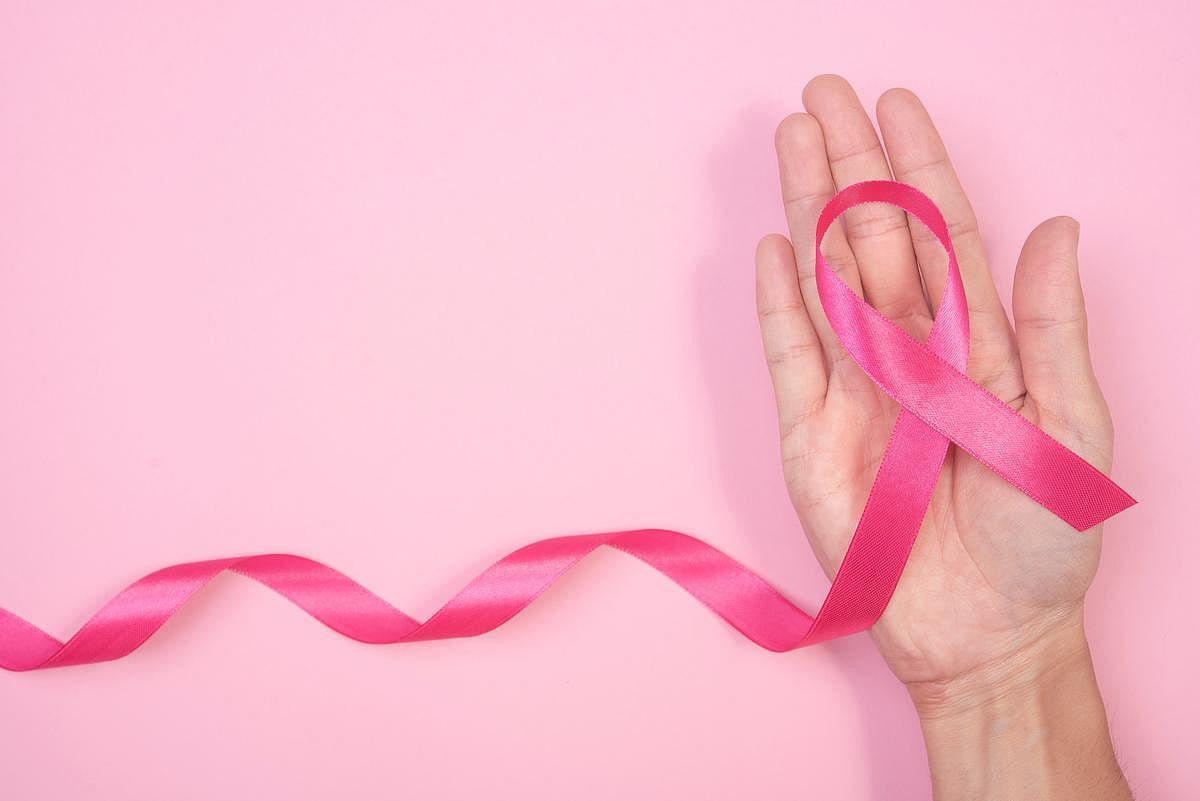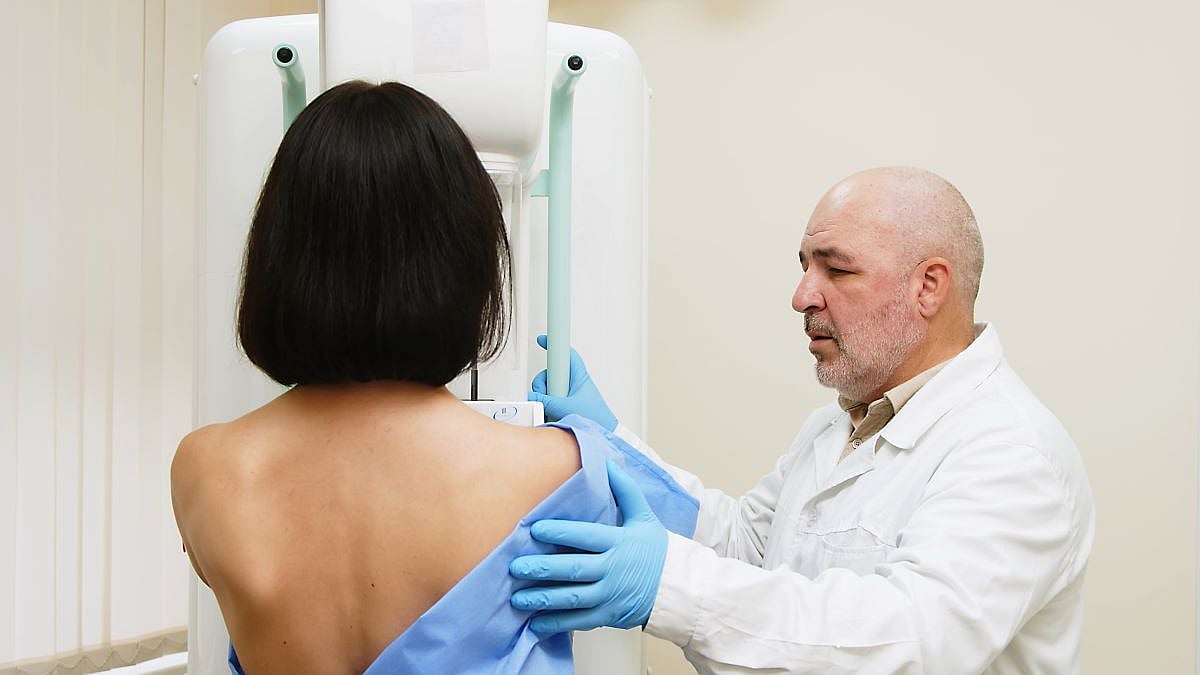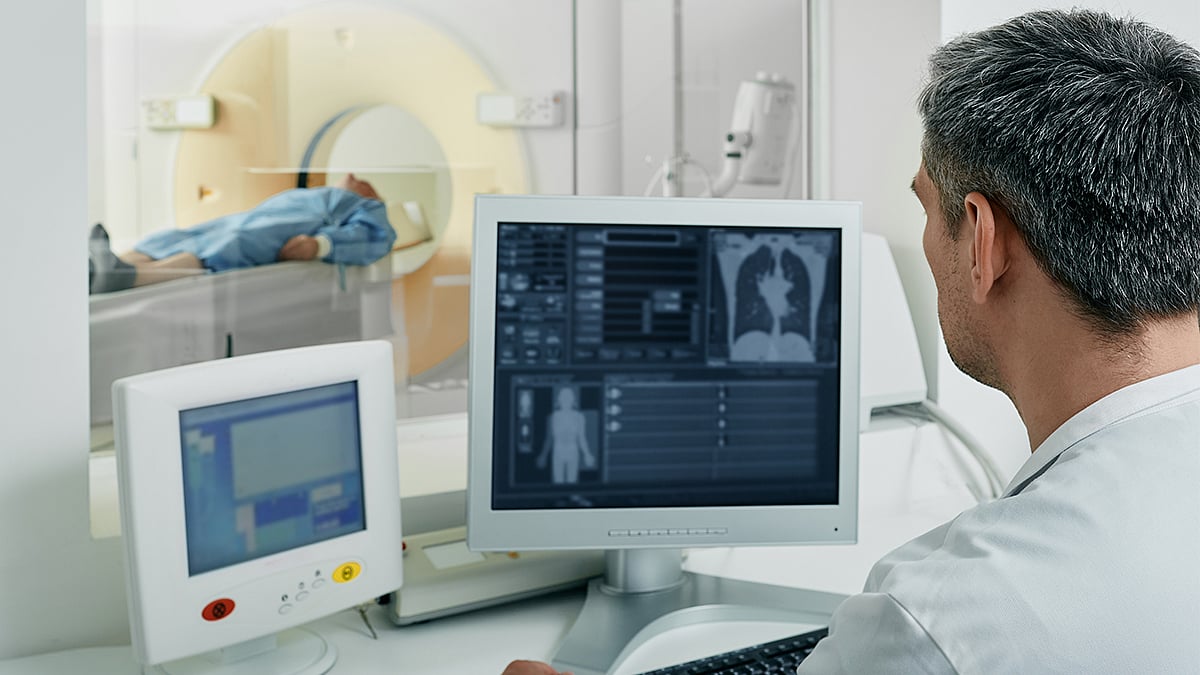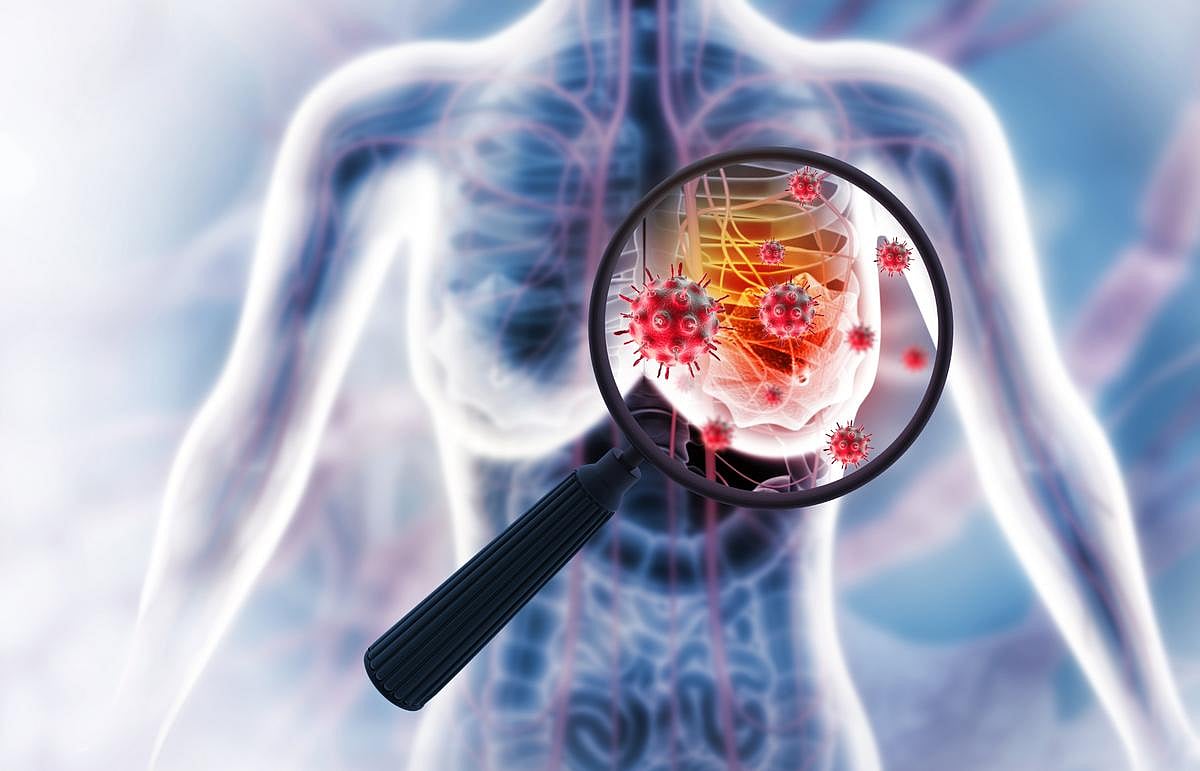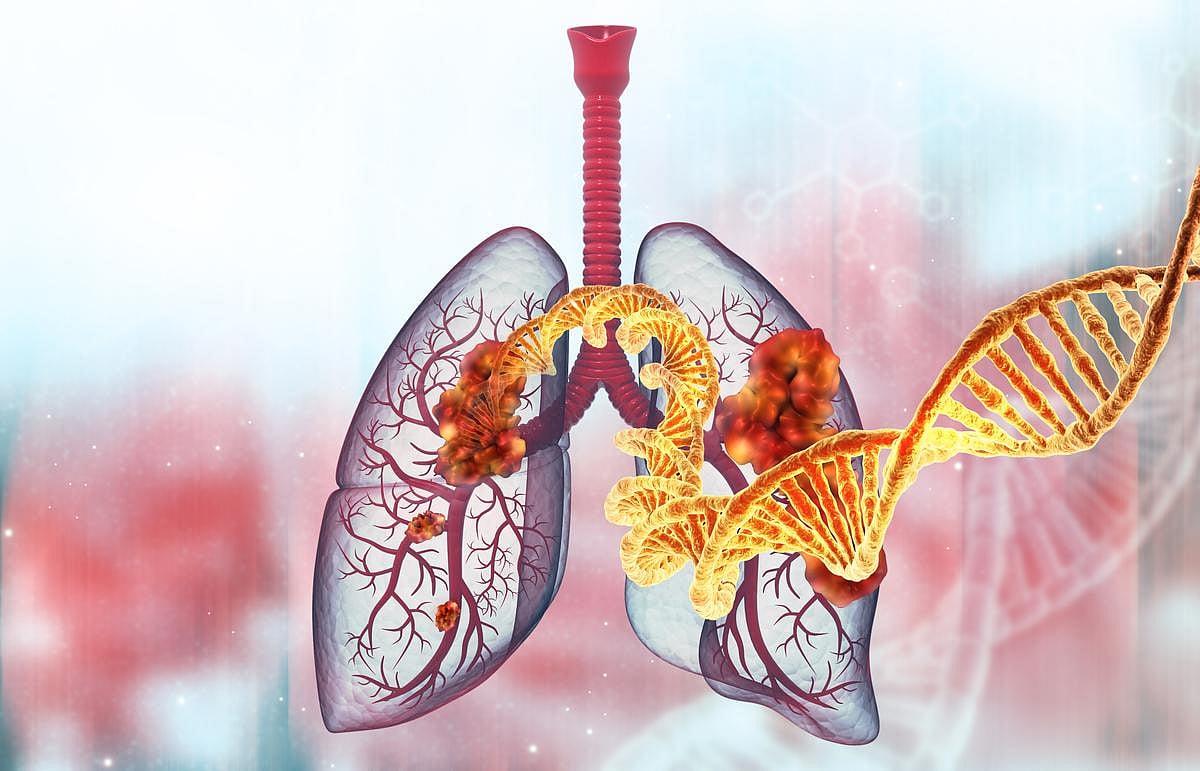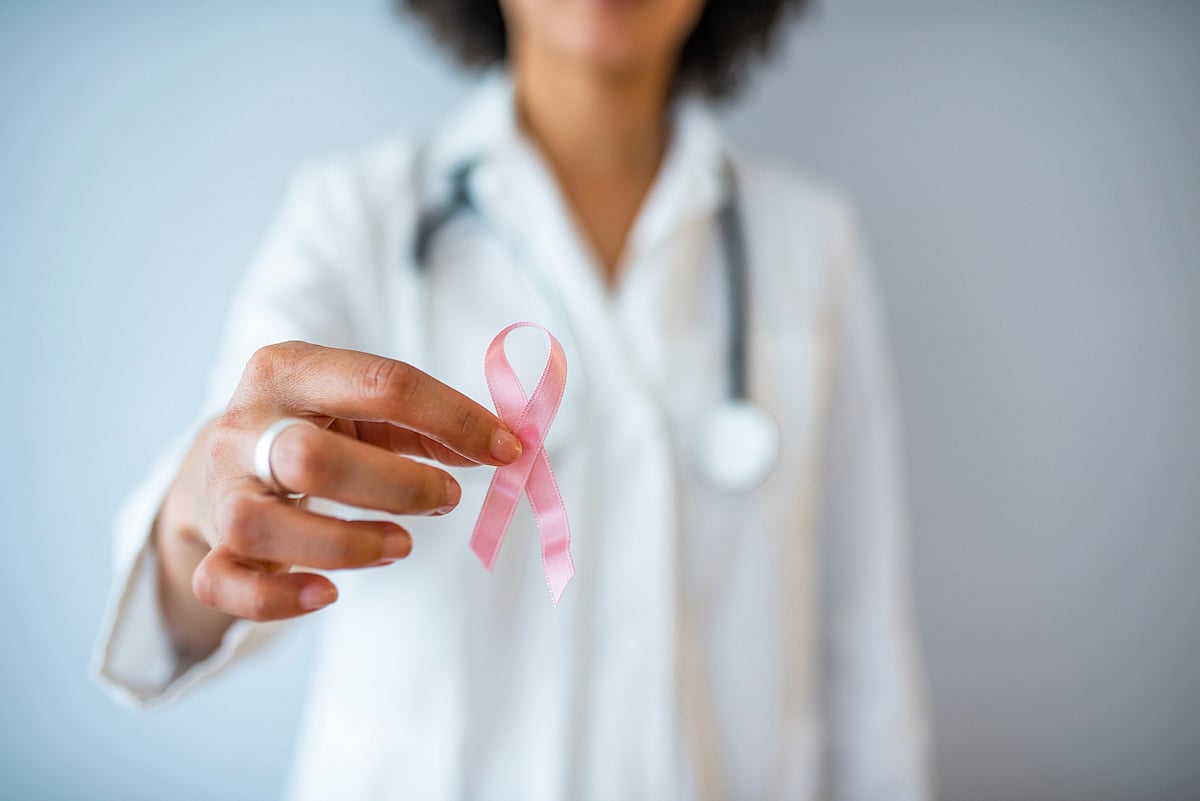Mon-Fri: 8:30a.m.-5:30p.m. | Sat: 9a.m.-12p.m. | Sun. & Major Holidays: Closed
Patient Resources
Get Healthy!
Results for search "Cancer: Breast".
Health Videos - 16
Is Tamoxifen Alone a Viable Option for Women with Low-Risk DCIS Breast Cancer?
In a new study, women with very early-stage DCIS breast cancer taking tamoxifen alone had higher recurrence rates than researchers expected. But they say the incidence of invasive breast cancer was still low at 5 years, suggesting tamoxifen alone may be an option in “carefully selected patients.”
New Study: Acupuncture Shows Real Promise for Cancer ‘Brain Fog’
A new study finds acupuncture may help breast cancer survivors struggling with attention, memory and other cognitive problems.
Invasive Breast Cancer Rising in Younger Women, Study Finds
A new study finds an increasing number of women 18-49 years old are being diagnosed with breast cancer, and most of the cases are invasive.
Women With Advanced Breast Cancer Are Living Longer, Study Finds
Major advances in treatment and care have led to improved survival for many women with advanced breast cancer, new study finds.
Study Links Global Rise in Cancer to Obesity Across All Age Groups
Researchers analyzed cancer trends in 42 countries and found a surge in certain cancer types in both young and older adults – with one exception.
Harder-to-Detect Breast Cancer Increasing in U.S. Women
A new report from the American Cancer Society finds a steep rise in lobular breast cancer between 2012 and 2021.
Long-Term Study Offers Reassurance to Early Breast Cancer Survivors
The risk of developing a second primary cancer after being treated for early invasive breast cancer is only slightly higher than the general population, according to a new study.
What Causes Chemo Brain? A New Study Points to Brain Shrinkage
In a new pilot study, researchers found breast cancer patients who experienced cognitive impairment after chemotherapy had lower levels of gray matter in brain regions connected to memory and language.
Obesity-Related Cancer Deaths Tripled Over the Past Two Decades, Study Finds
Researchers discover steep increases in cancer deaths linked to obesity since 1999, especially among women, older adults and Black people.
How Does BMI Affect Breast Cancer Risk in Postmenopausal Women?
A new study finds the combination of excess weight and heart disease in postmenopausal women is associated with an especially high risk of developing breast cancer.
GLP-1 Weight Loss Drugs May Lower the Risk for 14 Obesity-Related Cancers
A new study finds women taking GLP-1 Receptor agonists were significantly less likely to develop obesity-related cancers.
More Evidence Exercise Boosts Cancer Survival
A new study finds people who are physically active after a cancer diagnosis lower their risk of death significantly.
14 Types of Cancer Are on the Rise in People Under 50, Study Finds
Certain types of cancer are becoming increasingly common in people under 50, according to new research. These include breast, colon, kidney and uterine cancer.
Mammograms After 70 May Lower Risk for Late-Stage Breast Cancer
A new study finds older breast cancer patients who were screened at least once during the five years prior to diagnosis had 54% lower odds of advanced disease.
Red Wine Isn’t Any Healthier Than White Wine—With Two Possible Exceptions
A new study finds no significant difference in overall cancer risk between red and white wine. However, researchers say white wine was associated with an increased risk of skin cancer.
Minority Women Are Less Likely to Receive Prompt Follow-Up Testing After a Suspicious Mammogram
A new study finds women of color are less likely to receive same-day diagnostic imaging or biopsies after an abnormal mammogram finding.
Health News Results - 267
New Combo Therapy Extends Survival By More Than A Year In Advanced Triple Positive Breast Cancers
- Dennis Thompson HealthDay Reporter
- February 4, 2026
- Full Page
Taking one additional pill could buy more than an extra year of precious time for people with advanced breast cancer, a new clinical trial showed.
Adding the targete...
AI-Assisted Mammograms Catch More Hard-To-Detect Breast Cancers, Clinical Trial Shows
- Dennis Thompson HealthDay Reporter
- January 30, 2026
- Full Page
Artificial intelligence (AI) can help reduce the number of breast cancers found between mammogram screenings, clinical trial results show.
<...Hormone Drug Helps Fight Hormone-Fueled Breast Cancer, Trial Shows
- Dennis Thompson HealthDay Reporter
- January 6, 2026
- Full Page
A drug that mimics the female hormone progesterone might help women fight hormone-fueled breast cancer.
Women with breast cancer had slower tumor growth if they took
Risk-Based Breast Cancer Screening Outperforms Annual Mammograms, Clinical Trial Finds
- Dennis Thompson HealthDay Reporter
- December 16, 2025
- Full Page
Tailoring breast cancer screening to a woman’s individual cancer risk might work better than annual mammograms, a new study says.
Should You Know Whether You Have Dense Breasts? Maybe Not, Experts Argue
- Dennis Thompson HealthDay Reporter
- December 4, 2025
- Full Page
American women are notified if a mammogram reveals they have dense breasts, which can hamper the accuracy of breast cancer screening.
Bu...
Up to 1 in 4 Breast Cancers Occur in Women Under 50, Study Shows
- Dennis Thompson HealthDay Reporter
- December 2, 2025
- Full Page
As many as 1 in 4 breast cancers occur in women younger than 50, a new study has found.
Among seven outpatient clinics in the New York re...
Plasma Treatment Shows Promise For Menopause Symptoms Among Breast Cancer Survivors
- Dennis Thompson HealthDay Reporter
- November 20, 2025
- Full Page
Plasma infusions may help breast cancer survivors avoid genital and urinary symptoms while on hormone blockers, a recent study says.
As many as 70% of breast cancer ...
Self-Hypnosis Can Thwart Hot Flashes
- Dennis Thompson HealthDay Reporter
- November 14, 2025
- Full Page
Self-hypnosis might help some women in menopause find relief from hot flashes.
Hot flash frequency and intensity decreased by more than 50% among ...
Exercise Benefits Women With Advanced Breast Cancer, Experts Say
- Dennis Thompson HealthDay Reporter
- November 7, 2025
- Full Page
Exercise can help women with advanced breast cancer better withstand both cancer treatments and the ravages of the disease, a new clinical tria...
Advanced Breast Cancer Patients Living Longer, Study Says
- Dennis Thompson HealthDay Reporter
- November 7, 2025
- Full Page
Women diagnosed with advanced breast cancer can now expect to live an extra six or seven months compared to about a decade ago, researchers rep...
Many Breast Cancer Patients Can Safely Skip Radiation After Mastectomy, Study Finds
- I. Edwards HealthDay Reporter
- November 6, 2025
- Full Page
A new study suggests that many women with early-stage breast cancer may not need radiation after a mastectomy, thanks to advances in modern cancer treatment.<...
Rare, Dangerous Type Of Breast Cancer On The Rise In The U.S.
- Dennis Thompson HealthDay Reporter
- October 8, 2025
- Full Page
WEDNESDAY, Oct. 8, 2025 (HealthDay news) — A rare but dangerous form of breast cancer is on the rise in the United States, a new report says.
Lobular breast ca...
Inflammation Linked To Fatigue Among Cancer Patients
- Dennis Thompson HealthDay Reporter
- October 7, 2025
- Full Page
Fighting cancer can leave patients tired to their bones and researchers now think they might know why.
Inflammation was linked to fatigue among nearly 200 women with early-stage breast cancer during and after
Gene Test Can Predict Breast Cancer Risk For Women Diagnosed With Abnormal Cells
- Dennis Thompson HealthDay Reporter
- October 2, 2025
- Full Page
A genetic risk score can help predict which women will develop invasive breast cancer after abnormal cells have been found in their breast tissue, researchers said.
...
Mammograms May Still Save Lives for Women in Their 80s, Study Finds
- I. Edwards HealthDay Reporter
- September 24, 2025
- Full Page
Though most guidelines recommend mammograms up to age 74, new research suggests they can be valuable for women in their 80s, detecting breast cance...
Women With Dense Breasts Benefit From Advanced Cancer Screening Procedures
- Dennis Thompson HealthDay Reporter
- September 24, 2025
- Full Page
Women with dense breasts could benefit from an advanced cancer screening procedure called molecular breast imaging (MBI), a new study says.
Early Breast Cancer Survivors Have Little Added Risk Of A Second Cancer, Study Says
- Dennis Thompson HealthDay Reporter
- September 16, 2025
- Full Page
Women who survive an early breast cancer can breathe easy, a recent study says.
Their risk of developing a second cancer is low, about 2% to 3% greater than that of ...
A Saliva-Based Test for Breast Cancer Might Be Near
- HealthDay Reporter
- Ernie Mundell
- August 4, 2025
- Full Page
In a small new study, a handheld saliva-sampling device successfully detected breast cancer 100% of the time, researchers said.
The study only involved 29 saliva samples, and more research is needed.
However, the results remain “very exciting beca...
For the Win: College Student Powerlifts Past Breast Cancer
- HealthDay Reporter
- Dennis Thompson
- July 25, 2025
- Full Page
LaShae Rolle, 27, is a competitive powerlifter capable of squatting 441 pounds, benching 292 pounds and deadlifting 497 pounds.
Excess Weight Increases Risk of Health Double-Whammy Among Older Women
- HealthDay Reporter
- Dennis Thompson
- July 8, 2025
- Full Page
Older women carrying excess weight have a higher risk of a life-threatening double-whammy, a new study says.
Women past menopause with a higher body mass index (BMI) were more likely to develop
Type Of Hormone Therapy Can Alter Breast Cancer Risk, Study Says
- HealthDay Reporter
- Dennis Thompson
- July 7, 2025
- Full Page
Some women have expressed concerns about the risk of breast cancer associated with using hormone therapy to treat symptoms of menopause like hot flashes and nigh...
Former MTV Host Ananda Lewis Dies at 52 After Breast Cancer Battle
- HealthDay Reporter
- I. Edwards
- June 13, 2025
- Full Page
Ananda Lewis, a former MTV host and TV personality, is dead at 52.
Celebrity Diagnoses Underscore Rising Breast Cancer Rates in Young Women
- HealthDay Reporter
- I. Edwards
- June 9, 2025
- Full Page
More young women in the United States are being diagnosed with breast cancer and several celebrities have helped raise awareness by sharing their stories.
...Breast Cancer Screening In Women's 40s Can Save Lives, Study Says
- HealthDay Reporter
- Dennis Thompson
- June 3, 2025
- Full Page
Starting breast cancer screening in women’s early 40s will save more lives, a new study argues.
Nearly 3 in 4 women (73%) in their 40s find out they have breas...
AI Helps ID Candidates For Targeted Breast Cancer Treatment
- HealthDay Reporter
- Dennis Thompson
- May 28, 2025
- Full Page
Thanks to artificial intelligence (AI), more women might soon benefit from targeted breast cancer treatment, a new study says.
AI can help identify women who might...
Additional Breast Cancer Scans Can Triple Detection In Women With Dense Breasts
- HealthDay Reporter
- Dennis Thompson
- May 22, 2025
- Full Page
Louise Duffield, 60, was relieved to receive a normal mammogram result in 2023, but agreed to undergo an additional MRI scan recommended as part of a clinical trial.
Her mammogram showed she had very dense breasts, which can sometimes prevent detection of
AI Can Catch Hard-To-Detect Breast Cancers In Mammograms
- HealthDay Reporter
- Dennis Thompson
- May 14, 2025
- Full Page
Artificial intelligence (AI) can help prevent breast cancers that develop between routine mammograms, by catching ones that trained radiologist...
Weight Gain, Delayed Motherhood Linked To Breast Cancer Risk
- HealthDay Reporter
- Dennis Thompson
- May 14, 2025
- Full Page
Significant weight gain paired with delayed or foregone motherhood nearly triples a young woman’s risk of later breast cancer, a new study says.
W...
Some Cancers Increasing in People Under 50, New Report Shows
- HealthDay Reporter
- I. Edwards
- May 9, 2025
- Full Page
More young adults in the U.S. are being diagnosed with cancer, and researchers are trying to figure out why.
A new government report shows that rates of several ...
Ovary Removal Reduces Death, Cancer Risk Among Genetically Prone Breast Cancer Survivors
- HealthDay Reporter
- Dennis Thompson
- May 9, 2025
- Full Page
Removal of the ovaries and fallopian tubes appears to dramatically reduce the risk of death among breast cancer survivors who are genetically prone to cancer, a new study ...
Second Opinions Don't Significantly Delay Breast Cancer Treatment
- HealthDay Reporter
- Dennis Thompson
- May 6, 2025
- Full Page
TUESDAY, May 6, 2025 (HealthDay news) -- It’s natural to feel a wave of anxiety following a diagnosis of breast cancer.
But women s...
Program Matches Breast Cancer Patients To Exercise, Rehab
- HealthDay Reporter
- Dennis Thompson
- April 28, 2025
- Full Page
Breast cancer patients fare better if they continue to exercise during their treatment, and a new program can help women get the activity they need to boost their odds, re...
Most Women Are Comfortable With AI-Assisted Mammography
- HealthDay Reporter
- Dennis Thompson
- April 22, 2025
- Full Page
Women are OK with having an AI program help doctors review mammograms performed for breast cancer screening, a new study says.
About 7 out of 10 women (71%) said they’re f...
Breasts Can Shrink Following Cancer Surgery, Radiation
- HealthDay Reporter
- Dennis Thompson
- March 31, 2025
- Full Page
Breast-conserving therapy for breast cancer might not conserve as much as previously thought, a new study suggests.
Women’s breasts can shrink considerably after they’ve undergone radiation therapy and lumpectomy for their early-stage
Surgery Not Necessary In Some Early-Stage Breast Cancers, Study Says
- HealthDay Reporter
- Dennis Thompson
- March 31, 2025
- Full Page
Surgery might not be needed to treat as many as 60% of early-stage breast cancers, a new study says.
Breast cancers that have been comple...
Lumpectomy Preserves Sexual Well-Being Among Breast Cancer Patients
- HealthDay Reporter
- Dennis Thompson
- March 5, 2025
- Full Page
Opting for a lumpectomy during breast cancer treatment can protect a woman’s future sex life, a new study suggests.
Breast-conserving therapy (BCT) is associated with better sexual well-being, compared to mastectomy followed by breast reconstruction, researchers fo...
Chemo Causes Lasting Physical Decline In Breast Cancer Survivors
- HealthDay Reporter
- Dennis Thompson
- March 4, 2025
- Full Page
Breast cancer survivors treated with chemotherapy tend to suffer a longer-lasting decline in their physical health, compared to women who receive hormone therapy or other cancer treatments.
Young Women's Locale Plays Role In Breast Cancer Risk
- HealthDay Reporter
- Dennis Thompson
- February 26, 2025
- Full Page
Where a young American woman lives could play a role in her risk for breast cancer, a new study suggests.
In fact, the breast cancer risk...
Breast Cancer A Killer In Poor Countries, Report Says
- HealthDay Reporter
- Dennis Thompson
- February 25, 2025
- Full Page
Breast cancer deaths are expected to increase during the next quarter-century, largely impacting the world’s poorest nations, a new inter...
Women Of Color Receive Slower Response To A Bad Mammogram
- HealthDay Reporter
- Dennis Thompson
- February 19, 2025
- Full Page
Women of color are less likely to receive prompt follow-up testing after abnormal mammogram results, a new study has found.
Minority women are less likely than white women to re...
What Cancer Screenings Do You Need? A Quick Guide
- HealthDay Reporter
- India Edwards
- February 15, 2025
- Full Page
Cancer screenings can save lives by detecting cancer early, when treatment is most effective.
With an estimated 2 million new cancer cases expected in 2025, regular screenings are more important than ever, according to the
Breast Cancer: Fear of Recurrence Can Haunt Women for Years
- HealthDay Reporter
- Ernie Mundell
- February 10, 2025
- Full Page
A survey of hundreds of breast cancer survivors finds that tumor recurrence fear can wreak havoc on a woman's emotions.
“Cancer is ...
Pre-Op Immunotherapy May Help Treat Aggressive Breast Cancers
- HealthDay Reporter
- February 7, 2025
- Full Page
Giving patients with a common form of breast cancer an immunotherapy drug before surgery appears to boost outcomes, a new phase 3 trial finds.
The study involved patients with estrogen receptor positive (ER+)/human epidermal growth factor receptor 2-negative (HER2-) brea...
Exercise Prior to Cancer Diagnosis May Help Slow Disease Progression
- HealthDay Reporter
- Dennis Thompson
- January 9, 2025
- Full Page
Exercising now can increase your chances of successfully fighting cancer in the future.
Even low levels of exercise provided protection against cancer, a new st...
The Heart Disease, Breast Cancer Link
- HealthDay Reporter
- Dennis Thompson
- January 6, 2025
- Full Page
Heart disease and cancer might seem completely unrelated, but these two top causes of death sometimes act in concert.
Women with heart disease appear to have a greater risk of aggressive
Why Does Cancer Spread to the Lungs So Often?
- HealthDay Reporter
- Dennis Thompson
- January 3, 2025
- Full Page
The lungs are a tempting place for cancer cells -- so much so that more than half of people with advanced cancer elsewhere in their bodies wind up with lung tumors.
Researchers now think they know why.
Elevated levels of an amino acid called aspartate appear to all...
Could AI Plus Lasers Help Catch Very Early Breast Cancers?
- HealthDay Reporter
- Ernie Mundell
- December 26, 2024
- Full Page
Very early-stage breast cancers are notoriously tough to spot via mammograms, but new technology might make detection easier.
According to a new study published recently in th...
Some Breast Cancer Patients May Not Need Post-Op Chest Wall Radiation
- HealthDay Reporter
- Dennis Thompson
- December 18, 2024
- Full Page
Radiation therapy for breast cancer comes with a host of side effects, including conditions as serious as heart problems and pneumonia.
Now, a new study says some br...
Study Supports Tamoxifen for DCIS Early Breast Cancers
- HealthDay Reporter
- Dennis Thompson
- December 16, 2024
- Full Page
The established hormone therapy drug tamoxifen can significantly decrease the risk of cancer recurring in women with an early, low-risk form of breast cancer, a new study says.
Women who took tamoxifen a...
Newer Drug Could Be Advance Against Tough-to-Treat Breast Cancers
- HealthDay Reporter
- Dennis Thompson
- December 13, 2024
- Full Page
An experimental hormone therapy pill has shown promise in extending the lives of women with tough-to-treat advanced breast cancer, a new clinical trial shows.
The dr...


